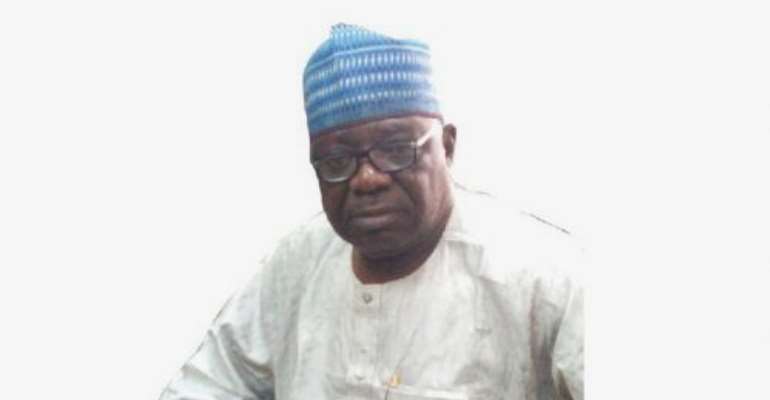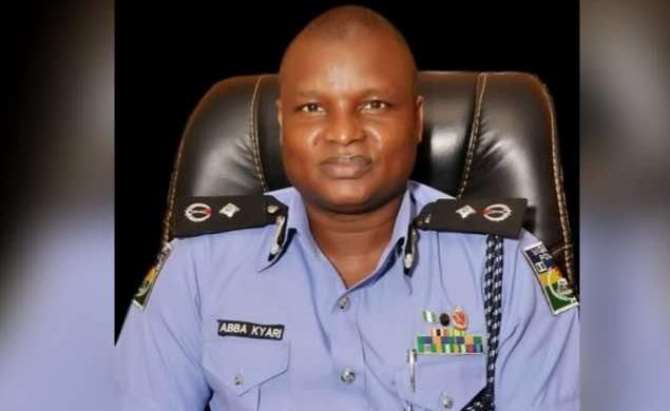How I discovered super-cop Abba Kyari – Aig Manko (RTD.)

Abubakar Manko retired as an Assistant Inspector General of Police of the Nigeria Police Force. He served as the AIG in-charge of Zone 2 supervising Lagos and Ogun states. He was also at various times commissioner of police in Sokoto, Katsina, Benin, and Lagos states. In this interview with Daily Trust Saturday, he spoke on the disbanded FSARS, how he discovered famous police officer DCP Abba Kyari, what he called the missteps of the immediate-past Inspector-General of Police, and more. Excerpts:
Daily Trust: There seem to be discordant tunes among Nigerians over the decision of the new Inspector-General of Police, Mohammed Adamu, to disband the Federal Special Anti-Robbery Squad (FSARS). As a retired senior officer, what is your take on that?
Abubakar Manko: It was a bold and commendable step, in view of the image problem the squad created for the force. However, let me first take you back in history. The Special Anti-Robbery section is always part of the State Criminal Investigation Department. It used to be referred as the D-4 in those days, but the SARS that later came up with the name FSARS was created in Lagos during the reign of terror of a notorious armed robber called Shina Rambo. He was so deadly that, at a point, policemen in Lagos were afraid to wear uniforms. The police authorities, desperate to see the end of that menace, called a meeting of top officers. There a unanimously agreed that it will be difficult for the anti-robbery section of the State CID to confront the problem, so a special squad was created. That’s how the Special Anti-Robbery Squad emerged, and it was domiciled at the State Command HQ in Ikeja. Since then, we have made very good use of this squad.
I was also privileged to also utilize the SARS as Commissioner of Police in Lagos between 2012 and 2014, to bring to an end the activities of a notorious armed robber known as Abe Godogodo, who was on the watch list of the police for over 14 years. He terrorised the whole of the South-West until SARS brought his reign to an end. So, the squad has been of immense benefit. Incidentally, the officer who was in charge of SARS then, is the same Abba Kyari, the young officer whose name has become a household one across the country for his exploits in tracking down criminals. He was discovered by me in Lagos; we brought him up.
But the one that has brought the bad name to the police, which the current IGP disbanded, is the brainchild of the immediate-past IGP. To come out to say that there is something called FSARS, under the direct watch of the IGP, while there is a Special Anti-Robbery Squad of the Force still there, is an abnormality.
DT: Aren’t you being a little too hard on the immediate-past IGP?
Manko: I don’t think so. Police is a career, a profession. And like all professions, your proficiency must show if you follow the procedure. Once you create a vacuum in your career progression, it will certainly show. This man who just left was my coursemate, we joined the police the same day. Four of us reported at the Police Staff College in Jos, and passed out the same day. It was the policy that when you pass out from the training school, especially those of us who were graduates, you have to go for one-year attachment. The former IGP was posted to the then Sokoto State, from where he was sent to Gusau for the attachment. Barely after the attachment, he joined the Mobile Police Force and he came back to the conventional police after attaining the rank of deputy commissioner. And you must know that he spent most of those periods moving from one foreign mission to another. So you cannot compare that person with someone who has been at home with the reality of local policing.
I think the concept of local policing is what was missing while the former IGP superintended over the Force.
DT: (Cuts in) But the new IGP also attended foreign missions…
Manko: I know people will argue in that direction, but the new IGP was a local policeman before he was seconded to Interpol in Lyon, where he rose to the position of a Director in charge of Africa Affairs, and he was asked to come back home after that.
DT: Are you saying he should not have come up with an idea of a special squad that would take orders from him directly?
Manko: Like I said, FSARS was a disgrace to the Nigeria Police, a negative approach to anything that has to do with conventional policing. You could find them everywhere, including my village, extorting money from citizens. And because of its formation, the Anti-Robbery Sections in the states were made impotent and couldn’t perform. A Superintendent commanding FSARS could call the bluff of a Command Commissioner of Police and say he reports directly to the IGP.
If you compare the immediate-past IGP’s performance with the two previous ones, you will agree that there wasn’t a need to keep him longer than necessary. I think the president, being a process person, gave him more time to prove that he can perform. But as far as I’m concerned, Idris didn’t add any value to effective policing.
DCP. Abba Kyari
DT: Back to ‘supercop’ Abba Kyari. You say you discovered him. How did that happen?
Manko: When I reported as a Commissioner of Police in Lagos, I made it a point of duty to always move around to assess situations. At the Anti-Robbery section, I discovered that a lot was happening that I didn’t like. I had one-on-one talks with all the officers there and I made up my mind to immediately reorganize. Kyari was the second-in-command of the section then, and was the quite type, but after we interacted, I was wowed with his high level of intelligence. Then I said to myself, ‘this is the new OC of the Anti-Robbery section’.
Some of the officers said he is too quiet, but I know a good officer when I see one. I knew he’d go places. And when he assumed command, he turned things around and we started getting results. It even came to a time when armed robbers were afraid to come and operate in Lagos, and those based there relocated entirely. It was due to the purposeful leadership of that young man that Lagos, at that time, was rid of criminals.
DT: Beyond the disbandment of FSARS, what other measures would you recommend for the IGP to be able to reposition the Police?
Manko: He has a lot to do, because he came in at a very critical period. The damage done to the psyche of an average policeman is enough challenge. Take the issue of promotion: how will you reconcile the fact that someone is promoted three times in a year, and his colleague remains on the same rank for nine years? You’re a Divisional Police Officer for many years, and somebody who just left the Police Academy becomes your superior? The new IGP has a lot of challenges to deal with.
Credit: Dail Trust

